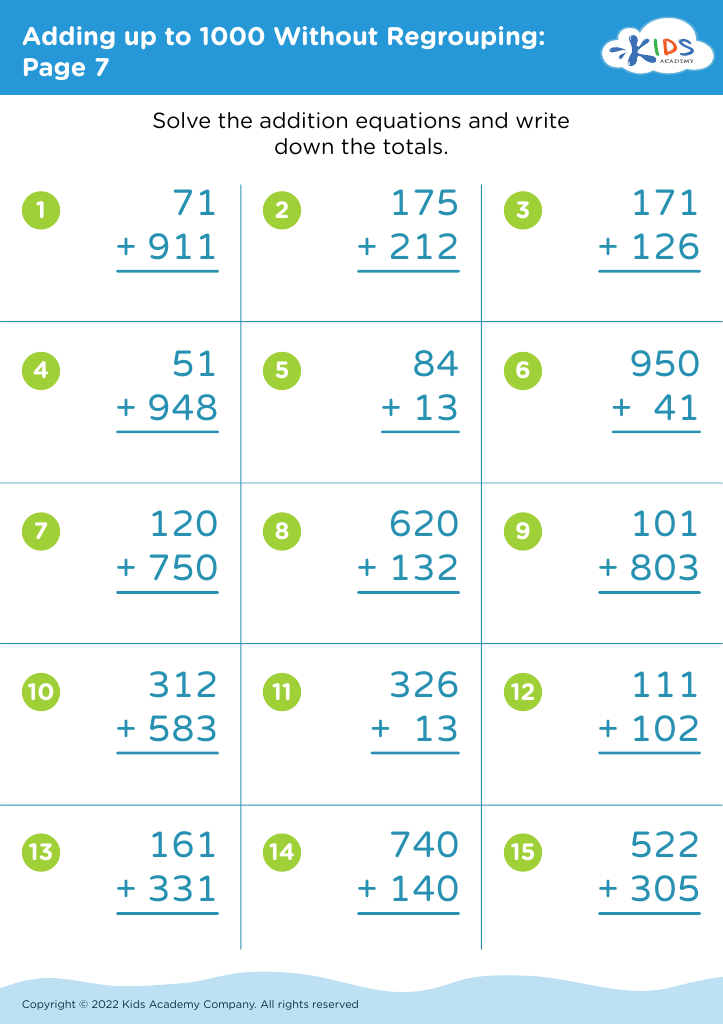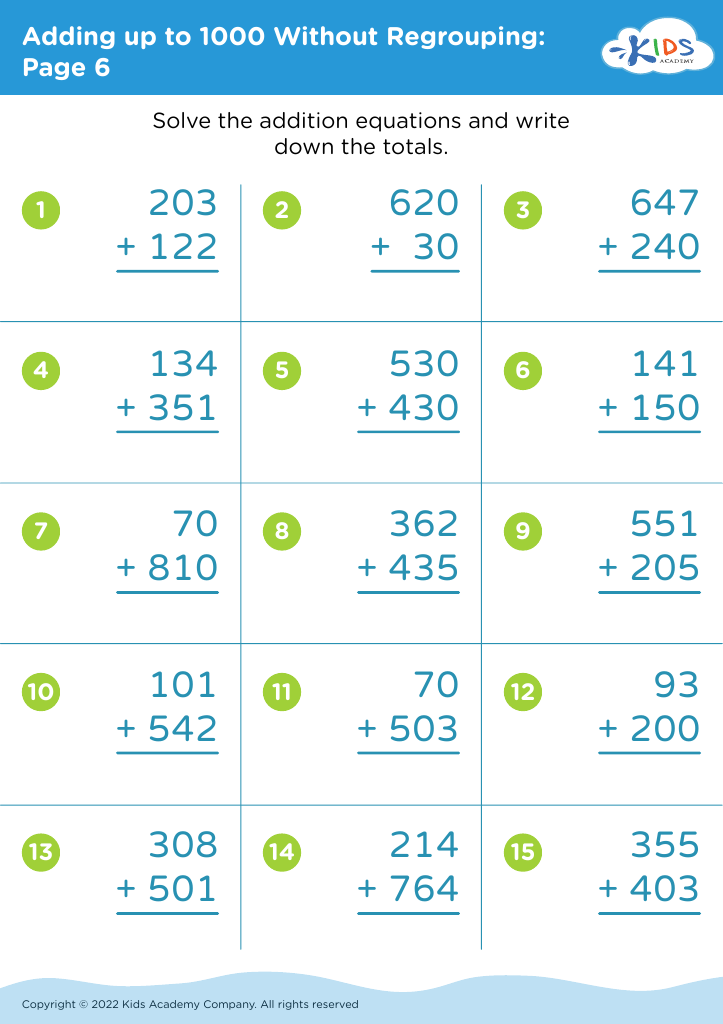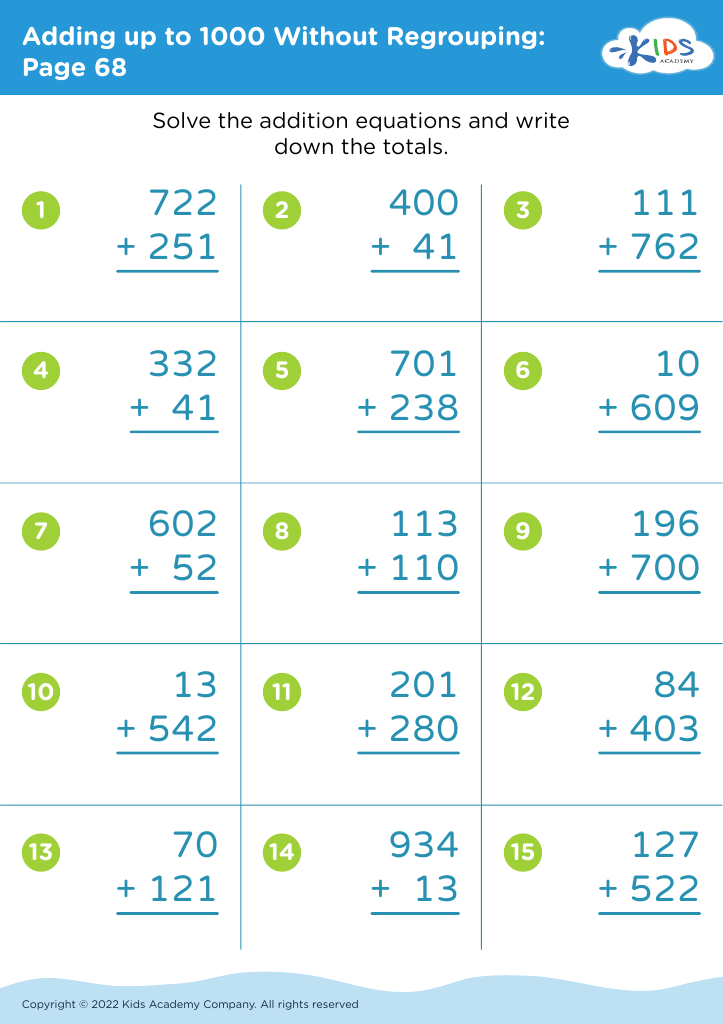Improving counting skills Adding up to 1000 Without Regrouping Worksheets for Ages 7-8
4 filtered results
-
From - To
Boost your child's counting skills with our engaging "Improving Counting Skills: Adding Up to 1000 Without Regrouping" worksheets, designed for ages 7-8. These printable resources focus on addition strategies that help children enhance their number sense and develop confidence in math. Each worksheet offers a variety of exercises that encourage young learners to practice adding numbers together seamlessly, without the complexity of regrouping. Perfect for reinforcement in the classroom or at home, these worksheets ensure a fun and effective learning experience. Watch your child excel as they build a strong foundation in arithmetic while enjoying the process of learning!
Improving counting skills and the ability to add up to 1000 without regrouping is essential for children aged 7-8, as it forms a foundational aspect of their mathematical development. At this age, students are transitioning from simple arithmetic to more complex problem-solving and number relationships. Mastering addition within this range promotes confidence, allowing them to tackle larger numbers and more challenging mathematical concepts as they progress in school.
Additionally, strong counting and addition skills cultivate logical thinking and reasoning, which are vital not just in mathematics but in everyday life situations, such as budgeting, measuring, and understanding quantities. For teachers, reinforcing these skills through engaging activities can significantly boost students' learning outcomes, encouraging a love for mathematics.
For parents, fostering their child’s proficiency in addition supports their academic growth and prepares them for more complex tasks in later grades. Moreover, it enhances their child’s ability to manage daily tasks, such as organizing toys, planning a budget for special treats, or helping with shopping lists effectively. Thus, prioritizing these skills contributes to overall academic success and practicality, making it crucial for both parents and teachers to invest time and resources into improving counting and addition skills in early education.














